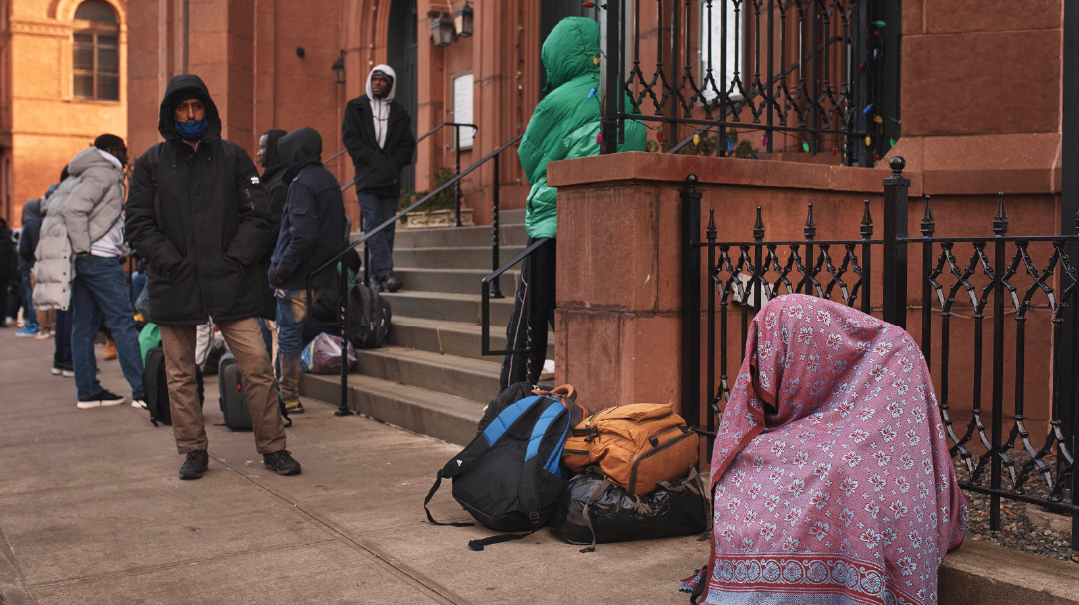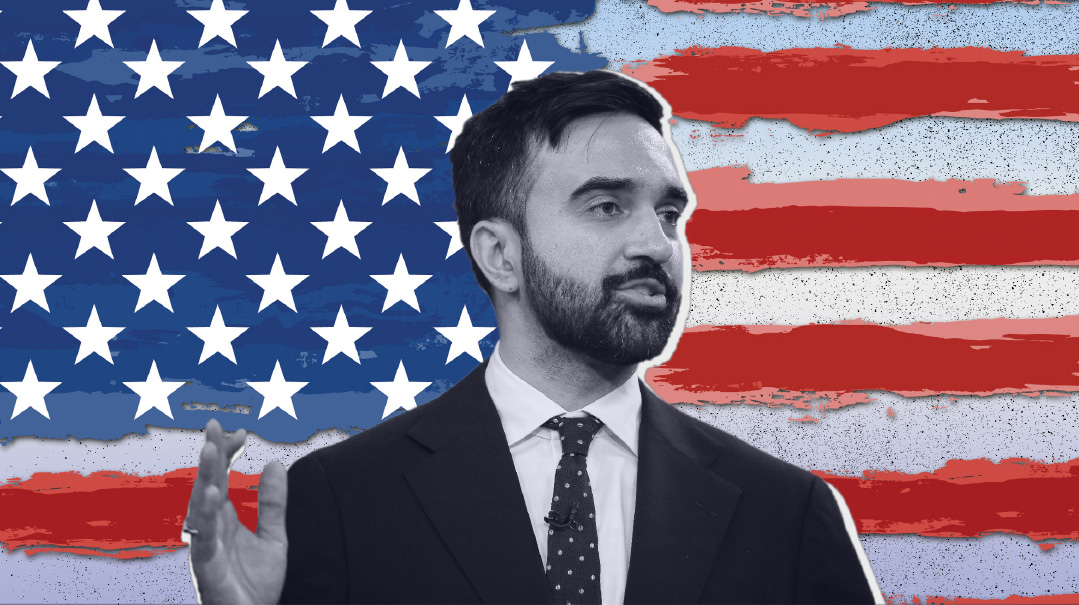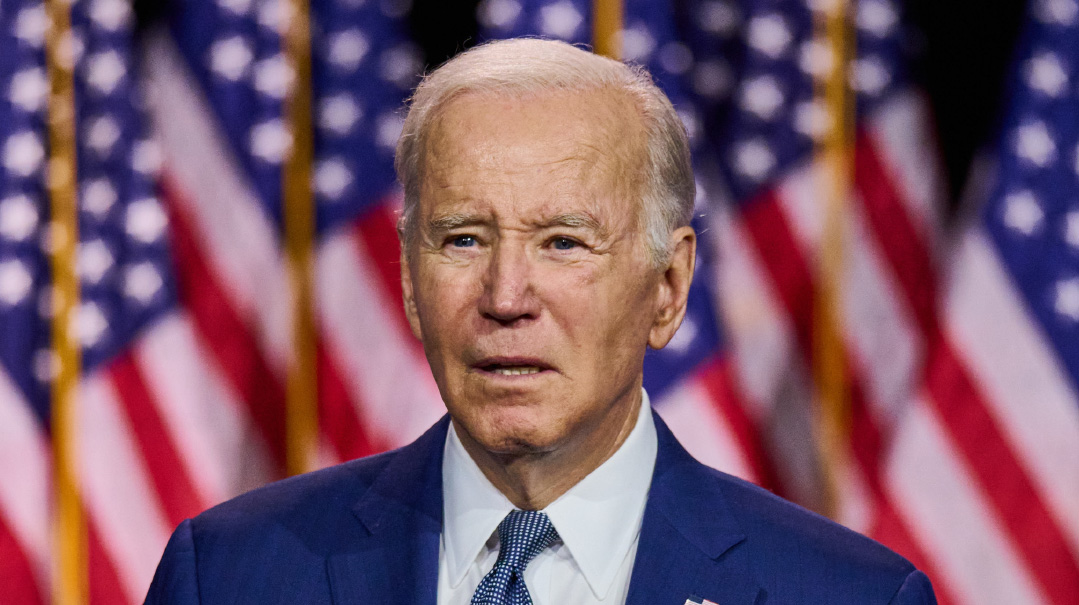Immigration at a Crossroads in 2024

Uncontrolled immigration will decide 2024 elections

Photo: AP Images
ON
June 6, 1993, the Golden Venture, a 147-foot tramp steamer, ran aground on a sandbar 200 yards off Jacob Riis Park in Queens. The ship had traveled a circuitous route, from Thailand to Kenya and finally to New York City. It was carrying 286 undocumented Chinese immigrants, who panicked in the shipwreck. Many jumped off and swam ashore, but five drowned and two died of heart attacks.
America’s leaders now had a political problem on their hands. Immigrants were seemingly invading their largest city, unchecked by authorities. The Clinton administration decided to detain the survivors of the Golden Venture wreck while their requests for asylum were considered. Half were ultimately deported, and many others languished in prison for years, until Clinton released them in his second term.
America has always had to tread a fine line on immigration. The country was built by immigrants, but there has always been tension over how many to let in, and from where. But this election year, forces are coalescing that will likely make this domestic issue the primary determinant of who will sit in power, from your local town mayor to the president of the United States.
America’s tortured history with immigration spans more than a century. It follows a pattern: Immigrants arrive in America for various reasons, whether they are seeking jobs and opportunity or fleeing oppression. At a certain point the growing influx drives American political leaders to determine that changes must be made to immigration law.
In the mid-19th century, the Chinese began arriving after the California gold rush and were recruited, often forcefully, into building the first transcontinental railroad. At some point, the flow of immigrants proved politically inconvenient, and President Chester A. Arthur signed into law the Chinese Exclusion Act of 1882.
In the early 20th century, record numbers of immigrants from Eastern Europe appeared on Ellis Island, including this writer’s great grandfather. Despite the booming economy, workforce immigration restrictions quickly followed. In 1917, Congress overrode a veto by President Woodrow Wilson to require a literacy test and enact other serious restrictions to curb immigration, which helped lead to the closure of Ellis Island.
Not all immigration booms led to restrictions. After a 1970s boom in immigration, President Ronald Reagan signed into law the 1986 Immigration Reform and Control Act, which helped 2.7 million undocumented immigrants become US citizens.
These historical examples — Democratic president Bill Clinton locking immigrants up and Republican president Ronald Reagan offering them amnesty — demonstrate the political nuances and complexities surrounding this issue. But 2024 will make what previous presidents have dealt with look quaint.
The Golden Venture was a one-time public relations nightmare for a sitting president. Imagine if there were undocumented immigrants arriving daily by plane, train, and automobile? This is the reality that mayors of America’s biggest cities are seeing after governors of western states such as Texas and Arizona decided to send their undocumented immigrants to cities that have “sanctuary” laws on the books. This has created three political realities that will consume American politics in 2024:
- Blue on blue. Despite being pro-immigration bastions, these major cities simply can’t handle the influx of so many people, and their Democratic mayors are turning to the Democratic administration in Washington for aid and help. This is creating a weekly battle between elected officials from the same party.
- Whither Latino voters? According to the Pew Research Center, Hispanic voters made up about 11 percent of the electorate in 2020. I assumed that this electorate would lean heavily Democratic, but a January 1 poll by Suffolk University/USA Today showed Trump with support of 39% of Latino voters, leading Biden with that group. This is only the latest poll to show that a once-dedicated Democratic voting bloc may be up for grabs.
- Immigration as a bargaining chip. Already in Congress, the foreign aid packages for Israel and Ukraine have been tied to discussion on immigration. What else will be tied to the issue? What major policies won’t be passed in an election year because of lack of movement on immigration reform?
I first saw the political impact of the immigration issue when I worked for a Utah congressman who supported a guest worker program. His nuanced and moderate position angered his base, and he drew Republican primary challenges election after election. Despite the firm support he had from President Bush, every campaign was difficult, and his stance ultimately cost him reelection, at least in part.
At least that congressman actively supported a particular policy. Voters may take an even more jaundiced view of inaction, as we are seeing polling on this issue drag down President Biden. One survey has his approval rating on immigration at 38 percent while another had it at 26 percent. These numbers are not good and are probably due in part to Biden’s lack of concrete action on immigration reform.
As it stands, this issue will drag down the Democratic Party at the polls in 2024. In the longer term, the Hispanic community will continue to grow and seems to be up for grabs, depending on which party tackles immigration reform in a way that ensures accountability.
This is a definitive year on immigration for both parties, both short-term and long-term. These must be their priorities:
- Democrats must stop fighting ASAP. Biden and the mayors of the big cities must get together and hash out their differences and come up with a solution that provides needed resources and a short-term solution for this influx of people.
- Republicans cannot just be the party of opposition on this issue. They will likely be in the majority soon and have to be unified on a concrete plan that offers a long-term answer to this massive issue.
And finally, both parties need to understand that there are people behind the decisions they make. Our community knows that only too well, as the Golden Venture wasn’t the first ship to come to America in search of hope:
In 1939 the MS St. Louis came so close to disembarking off the coast of Miami with its 937 Jewish passengers trying to escape Nazi Germany. Unfortunately, due to a terrible immigration system and an obstinate president, they were turned away, and subsequently they were interned in concentration camps.
Action (or inaction) on immigration will impact parties, presidents, and voters both in this election and for generations to come. The smarter politicians and parties will avoid the traps and move forward in a manner that will aid their reelection chances in 2024 and beyond.
(Originally featured in Mishpacha, Issue 994)
Oops! We could not locate your form.







